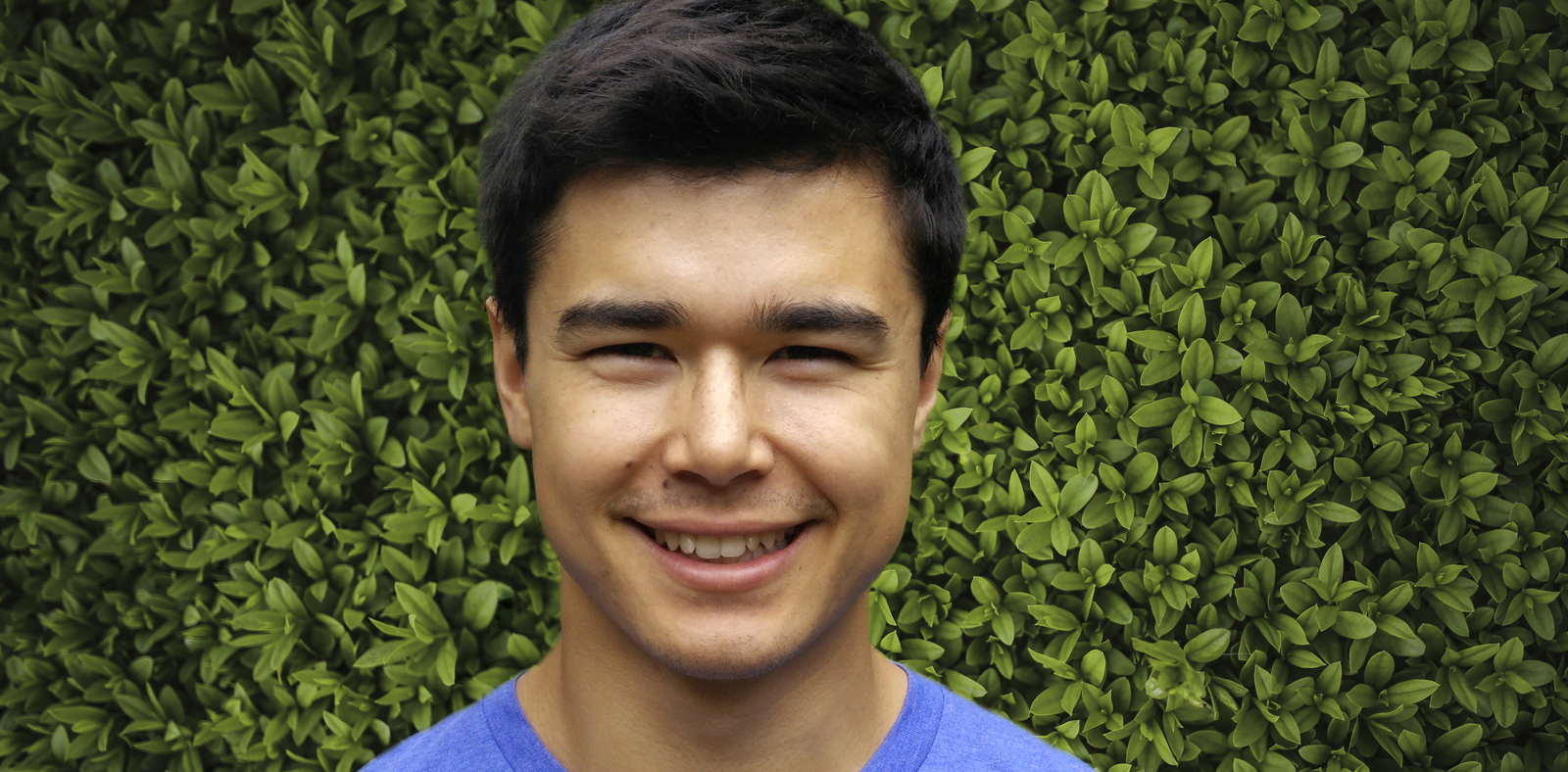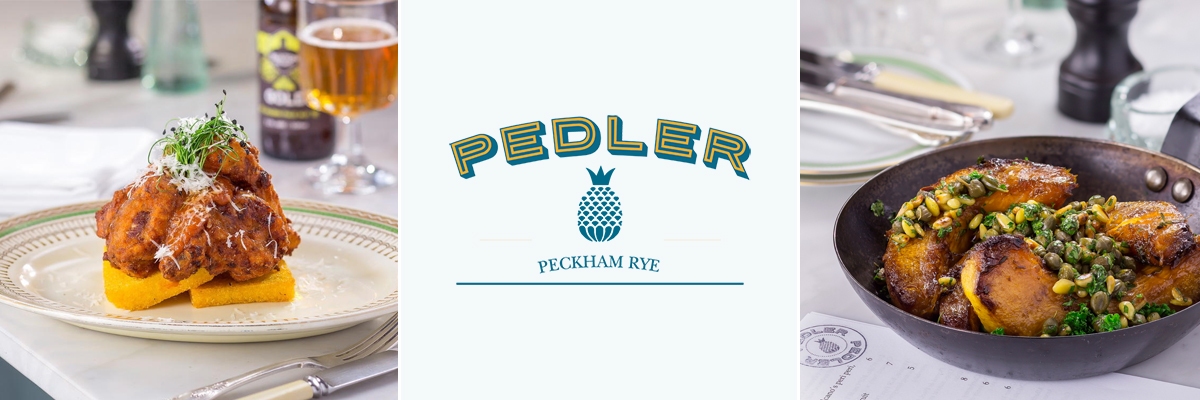
We all talk a good game about how to eat, what to eat, and the importance of preparing our own food from quality ingredients. The truth is that everyone faces the same dilemmas from time to time. Whether it's travel, working late, business lunches, social outings, or simply not being interested in cooking, there are many reasons that eating that home cooked meal may not always be possible.
I've decided to pose a series of questions to our members on a weekly basis on what gets them through these situations. You might be surprised at some of the answers and others might be exactly what you expected — either way, I'm hopeful that this will help you navigate your way through the myriad of awkward, inconvenient, or simply lazy situations you find yourself in.
Rory Heath from London, United Kingdom
CA: Do you put much thought into where you eat out? Or do you simply go anywhere and try to make do with what's on the menu?
RH: Interesting question! To provide some context - I am a final year medical student in London, UK. The first thing that is important to know is that I am on a very limited student budget; so I rarely eat out. If I do eat out, it's because I'm celebrating something special! Secondly, eating out in the UK is generally less common than I have found it to be in the US; it seems that many US residents are able to eat out multiple times in a day. On the other hand, in the UK, I prepare all of my own meals. My British peers may find their lunch in a shop, but I prefer to pack my own - it's cheaper, I know what's in it, and I can pack more nutrition into it!
To answer the question - When I eat out, I don't choose it on any particular nutritional need. I respect the dietary preference of my guests, but, we usually just find somewhere with a great reputation or is in vogue!
CA: Most memorable restaurant meal in (or near) London?
RH: One meal that comes to mind is at Pedlar, in Peckham in South London. Peckham has undergone a transformation of gentrification, and Pedlar is one of the products of this. I went there with some of my best friends — we indulged in the food, which were interesting spins on staples from South London and to South America — Frizzle Chicken, slow roast pork ribs. etc.
Although a far cry from my usual diet, dinner at Pedlar was memorable because of the delicious food, the intention to explore one of the up and coming restaurants, and a chance to catch up with friends!

CA: Most memorable restaurant meal outside of London?
RH: If you're ever in Singapore — stay and eat in Singapore. I have lots of family there but am not able to visit them very often; when my immediate family and I visit, we are always eating out to celebrate our reunion with our cousins, aunties, uncles and grandparents!
Try East Coast Chilli Crab, explore their Hawker centres, find local "Claypot Rice" and don't forget to try Hainanese Chicken Rice — our favourite is Five Star Hainanese Chicken rice.
Find More Member Recommended Restaurants Near You
CA: For people with special diets, how do you suggest they talk with restaurant staff in order to get what they need?
Luckily, restaurants in the UK are becoming increasingly aware of common allergens. As a result, they often display clearly on their menu allergens such as nuts, dairy, gluten and its vegetarian/vegan status. This shouldn't stop you clarifying everything thoroughly with your server, though!
CA: Do you prepare an emergency meal when you travel? If so, what do you include?
RH: I always have a can of sardines packed in olive oil. Each can packs about 20 grams of protein, omega-3 and some extra olive oil. If I am in a pinch it can be eaten on its own, but I can always find a bag of salad and some additions such as tomatoes, carrots or mixed nuts.
Saying this, I'll only draw on this if I'm really flagging — When I travel, I find it easier to fast; if I'm travelling I tend to be sedentary; fasting provides an opportunity for apoptosis and renewal, and finally I find that fasting improves my adjustment to new timezones to get over jetlag more quickly.
CA: Your favorite quick meal to prepare at home?
RH: I try to cook fast. We have a great egg poaching pan that I can put on the gas and cook eggs while I make my coffee in the morning. If I'm eating lunch, it's a throw-it-all-together salad with mixed leaves, sardines, mixed nuts and other veggies. Dinner is the longest meal - but if I'm in my student house, it's probably been stewing in a slow cooker. I will cook a large joint of meat in the slow cooker, with some root vegetables thrown in. This means I have quality protein and carbs pre-prepared, waiting to be reheated in a pan on the stove. Easy!
CA: Do you consume alcohol? Explain why you think it is or isn’t a good idea.
RH: I do. I don't drink regularly, but I am not hindered when I am out with my friends. Interestingly, I have been tracking my HRV for a few months using the HRV4Training app, which allows users to input their alcohol intake for the previous day. The data actually suggests that my HRV is improved after drinking a small amount of alcohol! This isn't a simple conclusion though, and may mean multiple things. Is it the alcohol, is it the caloric load, is it the carbohydrate load? Is it having effects on sleep? Are there active molecules in the drink? Furthermore, I did not describe the type of alcohol - would wine have a different effect to neat whiskey? Who knows!
CA: In terms of food, what is your guilty pleasure?
RH: I love cheesecake. The simpler the better. It's not a guilty pleasure, it's a pleasure that I wish I could have another forkful of!
 Rory is a final year medical student at King’s College London, UK. He chose to study medicine to better understand the physiological processes that define optimal health. When we understand optimal, we can identify the aberrant pathways that lead to disease.
Rory is a final year medical student at King’s College London, UK. He chose to study medicine to better understand the physiological processes that define optimal health. When we understand optimal, we can identify the aberrant pathways that lead to disease.
Rory hopes to use this method of thinking to identify simple interventions that can both optimise health and prevent disease. As we uncover further the effects of the relationship between our genes and our environment upon health, we see that many factors defining health are controllable with ‘lifestyle medicine’.
As a student, Rory joined the society to better understand the real-world application of lifestyle medicine, discover new resources and meet established clinicians. He hopes to increase the undergraduate presence within BSLM by connecting students with clinicians at seminars and events.
Read More Q&A's from the "What & Where They Eat" Series


